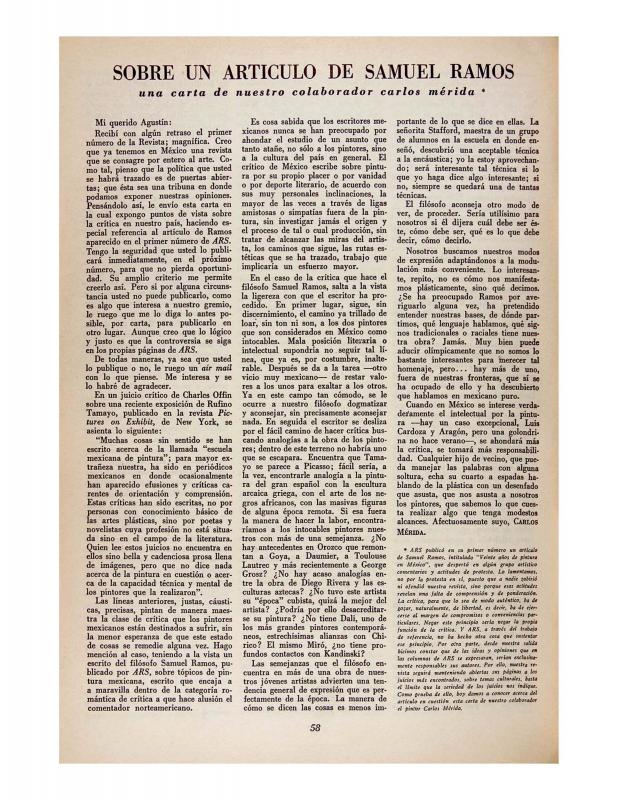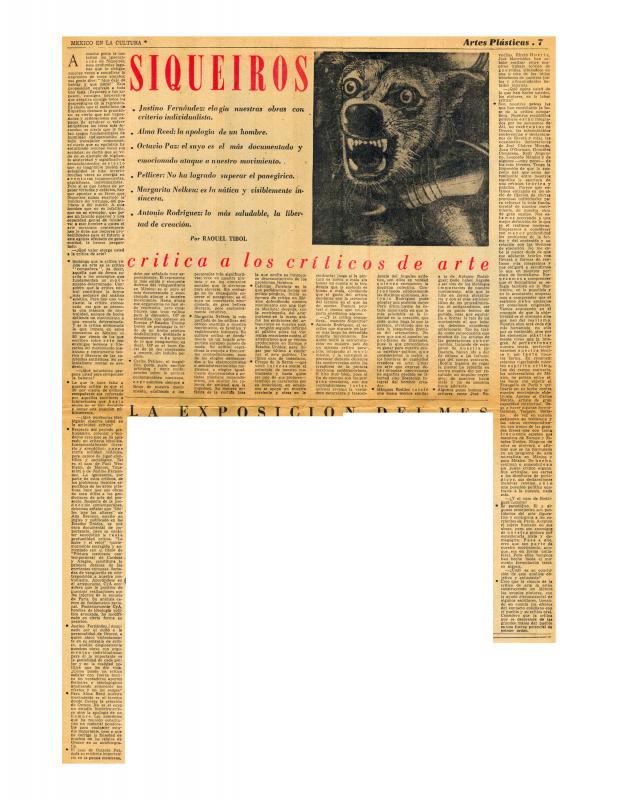The philosopher Samuel Ramos (1897-1959) stood out because of his concern with the ontology of Mexicans, and dedicated part of his work to topics related with its aesthetics. Among his works, Ensayo sobre Diego Rivera and La filosofía de la vida artística. The current article is characterized by the defense that Ramos builds regarding the work of Diego Rivera (1886-1957) as well as José Clemente Orozco (1883-1949). The author considers unfair the criticism, in particular, against both painters and, in general, against the Mexican movement of painting that appeared in the 1920s.
From the end of the 1930s, Carlos Mérida (1891-1984) already pointed out that there was decadence, not only in the visual language but also in the themes of the Mexican muralist movement, fighting for free creation and more abstract or universal artistic experimentation. This conflict became more severe during the following decade, when critics as well as artists and intellectuals participated in the debate.
About the criticism by Ramos regarding the painters who split away from the Mexican Movement, whom he considers imitators of foreign models and followers of commercial patterns, Mérida publishes, in the same organ, an article in response to the attacks of the philosopher (See note by Mérida, doc. 746913, in addition to the different critical positions by Siqueiros, doc. 821964).


